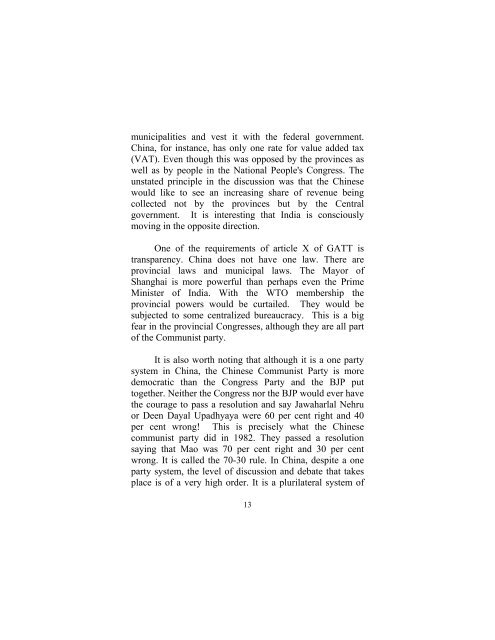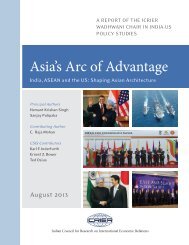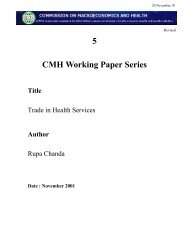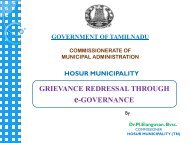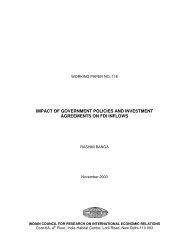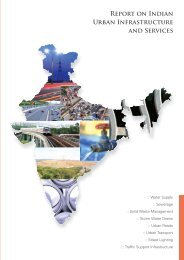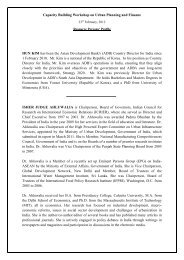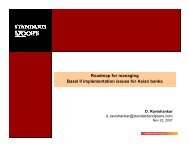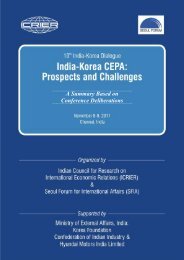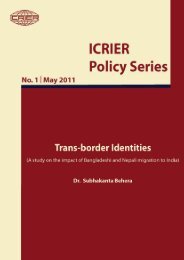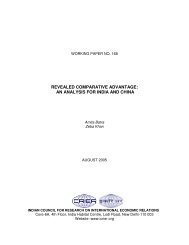china, wto and its impact on india - icrier
china, wto and its impact on india - icrier
china, wto and its impact on india - icrier
You also want an ePaper? Increase the reach of your titles
YUMPU automatically turns print PDFs into web optimized ePapers that Google loves.
municipalities <str<strong>on</strong>g>and</str<strong>on</strong>g> vest it with the federal government.<br />
China, for instance, has <strong>on</strong>ly <strong>on</strong>e rate for value added tax<br />
(VAT). Even though this was opposed by the provinces as<br />
well as by people in the Nati<strong>on</strong>al People's C<strong>on</strong>gress. The<br />
unstated principle in the discussi<strong>on</strong> was that the Chinese<br />
would like to see an increasing share of revenue being<br />
collected not by the provinces but by the Central<br />
government. It is interesting that India is c<strong>on</strong>sciously<br />
moving in the opposite directi<strong>on</strong>.<br />
One of the requirements of article X of GATT is<br />
transparency. China does not have <strong>on</strong>e law. There are<br />
provincial laws <str<strong>on</strong>g>and</str<strong>on</strong>g> municipal laws. The Mayor of<br />
Shanghai is more powerful than perhaps even the Prime<br />
Minister of India. With the WTO membership the<br />
provincial powers would be curtailed. They would be<br />
subjected to some centralized bureaucracy. This is a big<br />
fear in the provincial C<strong>on</strong>gresses, although they are all part<br />
of the Communist party.<br />
It is also worth noting that although it is a <strong>on</strong>e party<br />
system in China, the Chinese Communist Party is more<br />
democratic than the C<strong>on</strong>gress Party <str<strong>on</strong>g>and</str<strong>on</strong>g> the BJP put<br />
together. Neither the C<strong>on</strong>gress nor the BJP would ever have<br />
the courage to pass a resoluti<strong>on</strong> <str<strong>on</strong>g>and</str<strong>on</strong>g> say Jawaharlal Nehru<br />
or Deen Dayal Upadhyaya were 60 per cent right <str<strong>on</strong>g>and</str<strong>on</strong>g> 40<br />
per cent wr<strong>on</strong>g! This is precisely what the Chinese<br />
communist party did in 1982. They passed a resoluti<strong>on</strong><br />
saying that Mao was 70 per cent right <str<strong>on</strong>g>and</str<strong>on</strong>g> 30 per cent<br />
wr<strong>on</strong>g. It is called the 70-30 rule. In China, despite a <strong>on</strong>e<br />
party system, the level of discussi<strong>on</strong> <str<strong>on</strong>g>and</str<strong>on</strong>g> debate that takes<br />
place is of a very high order. It is a plurilateral system of<br />
13


